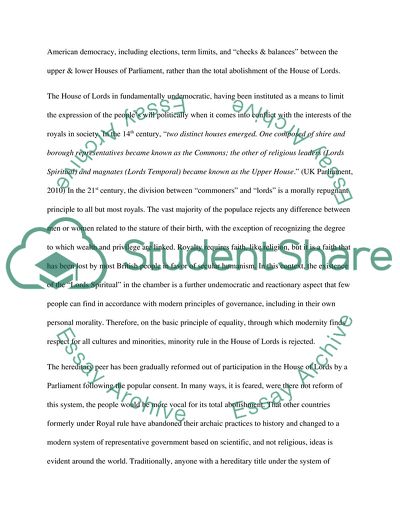Cite this document
(“Should the House of Lords be Abolished Assignment”, n.d.)
Should the House of Lords be Abolished Assignment. Retrieved from https://studentshare.org/politics/1574393-should-the-house-of-lords-be-abolished
Should the House of Lords be Abolished Assignment. Retrieved from https://studentshare.org/politics/1574393-should-the-house-of-lords-be-abolished
(Should the House of Lords Be Abolished Assignment)
Should the House of Lords Be Abolished Assignment. https://studentshare.org/politics/1574393-should-the-house-of-lords-be-abolished.
Should the House of Lords Be Abolished Assignment. https://studentshare.org/politics/1574393-should-the-house-of-lords-be-abolished.
“Should the House of Lords Be Abolished Assignment”, n.d. https://studentshare.org/politics/1574393-should-the-house-of-lords-be-abolished.


